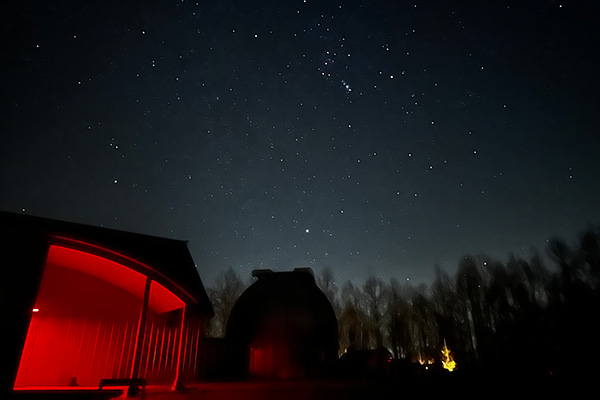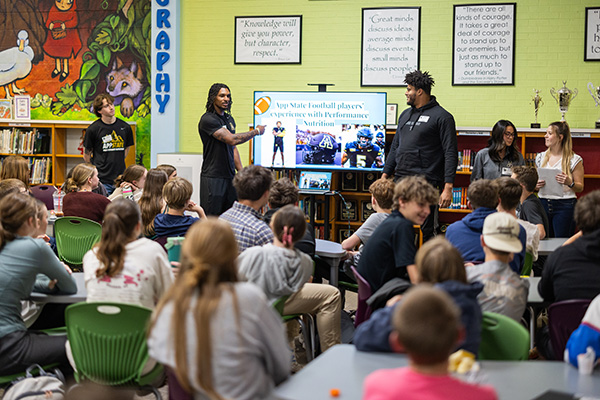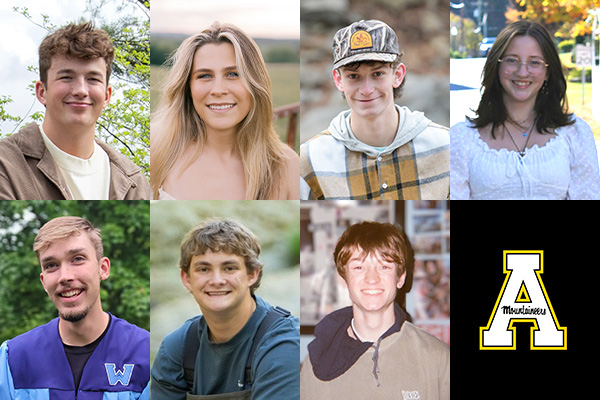Conversations with smart people about stuff that affects our world, and how we affect it
Civil rights leader Julian Bond recalls lessons from his experiences as an activist, and talks about the importance of finding – and acting on – opportunities to effect change.
Civil rights leader Julian Bond recalls lessons from his experiences as an activist, and talks about the importance of finding – and acting on – opportunities to affect change.
Transcript
Megan Hayes: On January 23rd, Julian Bond visited our campus as the featured speaker in Appalachian’s 31st Annual Martin Luther King Jr. Commemoration. While he was on campus he stopped by our podcast studio, and we wanted him to share his perspective, because he continues to deliver a powerful message of equality, freedom, and justice as a sought-after public speaker, author and commentator.
Beginning with his role in the civil rights movement, Julian Bond has always been on the cutting edge of social change and leadership. He’s legendary for his countless accomplishments and accolades, including chairmanship of the NAACP, and being the first president of the Southern Poverty Law Center.
A first-hand eyewitness to many watershed moments in the history of the civil rights movement, Bond founded the Student Nonviolent Coordinating Committee, he organized voting drives and sit-ins. An elected member of the Georgia House of Representatives, he was denied his seat by legislators until the intervention of the United States Supreme Court in 1966. Co-chairman of an insurgent delegation to the 1968 Democratic Convention, Bond became the first African-American to be nominated for vice president of the United States.
From his civil rights and anti-war leadership in the 1960s to his support for gay rights in the new millennium, Bond helped define activism in our country. As an activist, he has faced jail for his convictions, most recently for protesting the Keystone Pipeline. As a professor, he has taught at Harvard, the University of Pennsylvania, American University and is a professor emeritus in the History Department at the University of Virginia.
That’s actually a short version of his biography. It was hard not to be star struck.
MH: Mr. Julian Bond, welcome to Appalachian State University.
Julian Bond: Thank you. That’s very kind of you.
MH: We appreciate you joining us today. There is so much I’d love to talk with you about today, but if we could focus our conversation on race relations, I think that would be really helpful for our community, because particularly last semester, we saw some really significant changes on our campus. We welcomed a new chancellor who immediately identified increasing diversity as a priority for her and for our community, and we saw four demonstrations related to race relations on our predominantly white campus. So, I’d like to take this opportunity to ask you about activism and changing community culture, because we are a campus that is really watching our own evolution in terms of our diversity, and I think in some ways we are searching for how to be active participants in that evolution instead of just passively watching it happen. So while we have these policies in place and recruitment goals in place for attracting a diverse base of faculty, staff and students, we need, and I really do think that we want, to be a place that goes beyond the policies and the demographic bean-counting and really affects true change and wants to move forward. We have to keep moving forward. I'd like to ask your thoughts today about what it means to move forward and how we can move forward.
JB: I think you have to find ways to nurture diversity almost as if you were growing a plant or flowers. Find some way to say to this group of students who were active in these protests that you mentioned that you can do more and that your numbers can grow…that many of you who didn’t participate can participate the next time and their will be a next time and we’ll do XYZ or ABC. You have to create opportunities where people can say, “I want to be a part of that.” What those opportunities may be I don’t know but I’m sure these bright minds here can say this thing that thing the other thing. You have to create opportunity for people to express themselves and to say, “Here’s something we need to be doing. Here’s something we need to be pushing hard at.” You’ll be surprised at the number of people I think who’ll say, “Well I want to be a part of that.”
MH: Yeah, I think there are a lot of people who want to really be a part of that. If you don’t mind could we back up and just talk about the big picture for a minute?
JB: Sure.
MH: I am interested in your perspective just on the evolution of racism in America from the civil rights movement to present day. Can you talk about how racism has changed… and maybe even how it hasn’t changed? You know we’re seeing this re-activation of activism that harkens to the civil rights movement?
JB: Let me talk about it in the context of my own life. I became 75 last week and it’s a wonderful time but I wondered, over the course of my life, things have changed fairly radically. When I was the age of these students I was talking to an hour or so ago, it was a different world. It was a black and white world. I lived in Atlanta. There were places in Atlanta I couldn’t go. I couldn’t dare to go. I couldn’t eat. I couldn’t work at certain places. All that’s changed. All that’s gone. And all these changes have come about because of the activities of people in the movement. You know we people in the civil rights movement call it, “The Movement.” We think everybody knows what that means. It’s really just a collection of people, organizations, groups…who in one way or the other said, “I’m going to make some change occur.” And then went out and made that change occur. There’s no reason this process can’t continue as it does here. You say you’ve had four such protests here? That’s something new here that didn’t happen before and as I said a minute ago, it needs to be nurtured, it needs to be developed. It needs to be pushed and pushed and pushed…not yelled and shouted and screamed but pushed and pushed and pushed so that more and more people think they can be a part of it.
MH: Nationally there are all these conversations taking place about this new movement and how this new movement is defining itself. What are your thoughts on this? Particularly how this movement can sustain itself beyond this short-term trend associated with a social media hashtag?
JB: You know it’s so interesting to me. It reminds me of the Occupy movement which really just petered out. It had great promise but turned out to be I think nothing at all at the end. I don’t think that’s going to happen to this and it’s amazing to me to pick up every day’s newspaper and see that in “X” city, X number of people did this…Y number of people did this…Chicago…Detroit…Birmingham. Here there everywhere these things keep going on. I think they’re going to keep going. I think people are going to want something to happen…some benefit to come out of this. I think we’re going to find out more of who they are. You know one complaint against this group of activists today…these young people today is that they have no leaders. Of course I think that’s just bogus. Of course they have leaders. They are leaders. They’re marching down the street. They’re saying meet me at this place. Lets get together at 10 o’clock. Let’s do this. Lets all gather and so on. So of course they have leaders. We don’t know them. We don’t know their names. As we use to know leaders of the civil rights movement years and years ago. But I think great things are going to happen. I’m just sitting and waiting for them to happen. I’m trying to encourage them as much as I can.
MH: So along those lines, There is this point at which a movement has to keep going has to move forward so…You know you go to this activism that’s really about creating awareness and moving to that point where real systemic cultural change can take place. When you have seen that happen successfully, what did that look like?
JB: Well, if you think of the simplest kind of thing…integration of lunch counters. I participated at sit-in demonstrations at lunch counters in Atlanta in the 1960s. I didn’t get arrested for any of these things in Atlanta. I got arrested for other things. But, I marched. I protested. I was pushed aside by the police. I was threatened with arrest. All of that contributed to the integration of lunch counters. When the Civil Rights Act of 1964 was passed…BAM…it happened just like that. It happened because of the activities of people who fought and yelled and screamed and made noise and did get arrested…who did all the things that movement had to do to make these things happen. That’s going to happen with this now. We’re not sure about what role it’s going to take. We don’t know what’s going to happen but I can tell you I believe as surely as I’m sitting here the same pattern is going to be followed. It won’t be exactly the same. Things won’t behave exactly the same way. People won’t do exactly the same thing. But people are going to say, “I’m going to do something about this. I’m irritated at this. I’m angry at this. I want some change to this. I’m not going to tolerate this kind of behavior by police." I’m going to find out why policemen believe they’re not susceptible to any complaints. I mean…how can they possibly believe that? We’re going to do everything we can to raise the number of people who participate. Increase the numbers and we’re going to get something done. So this won’t turn out like Occupy. This will be better than Occupy. Bigger and better and stronger.
MH: Yeah. One of the things that occurs to me is, thinking about your history as an activist and also someone who affected change within government is this almost marriage between what it takes to you now rebel in a lot of ways and work outside the system. Then also the work that has to be done within the system and I think that there sometimes is some hesitation to take that step from moving outside to kind of working within the system as a way of making that change happen. Have you seen that?
JB: Yes, I’ve seen it. Also as your talking I thought of how many times I’ve looked back on my life and my change from the protest movement to the political movement and found out that I didn’t do things that I could have done or should have done. I look back over this life I’ve had and think about why didn’t I do that? Why didn’t I do this? Why didn’t I push hard over here? Why didn’t I do that or the other thing? Why did I let so many options go by that were missed? And why aren’t I taking opportunities in hand right now. Why aren’t I doing more things right now? I’m trying to find other ways I can be useful in this movement at age 75. What can I do about it? I know there are things that I can do and I’m going to do them. I’m not sure what they are but I’m going to do them. Watch me.
MH: I can’t wait. So I have to admit it took me a really long time to formulate this question. I think it’s one of the hardest questions I’ve ever really had to write. A lot of it is because I struggled with the word choice. What it comes down to is sometimes it’s really easy…and I think we have found that here at Appalachian…in an isolated culture like academia to get really comfortable in complacency. Especially when you have a largely homogeneous culture it can just be really easy to you know accept that things are okay and kind of just settle in and not really get out there and do exactly what you challenged our students today which is get involved. Pay attention. Stand up and do something whatever that something is that you need to do. So, I really struggle with using the word ally but I think a lot our students and faculty and staff at Appalachian, they’re seeking an authentic way to be a part of that process. Part of changing our culture into one that goes beyond lip service. I mean…in a lot of ways we’re a bunch of white people going, “How can we help? How can we make this happen in our own culture, in our own change how can we push without taking over or overtaking something that might not really belong to us?" Are there lessons that you have learned that you can talk about?
JB: Yes and there are examples that you can go to and look at…other people. I was just thinking while you were talking about Anne and Carl Braden. Are you familiar with the Bradens?
MH: I’m not.
JB: Google them. Anne and Carl Braden. They’re just wonderful wonderful people. This is a white couple from Louisville, Kentucky. She was from Anderson, Alabama. She played an enormous role in the civil rights movement yet no one has ever heard of her. Most people don’t know of her good works. She’s a wonderful person and there are others like her. There are people who work for the student non-violent coordinating committee. I was just thinking about Mindy Samstein who most people listening to us have never heard of. There are just many…long long lists of such people…white people who were active in the movement. People who played a wonderful role in the movement. Again, we don’t know them because they didn’t celebrate themselves. They didn’t march at the front of the line but they marched non-the less. They are there. They did wonderful things and they’re there to be emulated and copied. There are people…we ought to say, “I can do that. I can do like that.” And there are white students on this campus that can say, “Gee, I can do what she did. I can do what he did. I can do something more than they did.” Wait and see. They can do it.
MH: Yeah. I think also our administrators and our faculty are looking for ways to provide those environments where those conversations can take place.
JB: Well again there are models there. Think of Howard Zinn who taught at Spelman College in Atlanta before the world heard about him as Howard Zinn the Boston University professor. Or just a long long list of figures like him who played a role in the movement. Again, they’re not really well known but they’ve had just a wonderful wonderful effect on it.
MH: There’s a part of me that wonders if just trying to create an environment where it’s safe to stumble and fall a little bit. It’s safe to mess up…
JB: Yes you have to be ready to make a mistake. And pick up and do it again.
MH: I just want to say personally I appreciate the time you have taken to sit down with us today. I know you have a very busy day and there is a lot going on. What we have to do on our campus I think will be largely informed by your wisdom. There are a lot of people on our campus looking forward to hearing you tonight and looking for role models and we appreciate you being one of those.
I think that’s a big weight. You bear it well.
JB: I do my best. Thank you.
MH: So, Julian Bond, we appreciate your time today. Thank you very much.
JB: Thank you.
MH: I wanted to talk to Julian Bond because I don’t think our campus community knows how to move forward. So I thought if I could ask him about his experience as a civil rights activist and a legislator, maybe he could offer some guidance. And what he told me – told us – is that we have to figure this out for ourselves. In doing so, we must honor the past and understand that the days when black people could not sit at the lunch counter are still in the memories of millions of Americans. And those days offer us some incredible role models for joining together to change our community for the better. But ultimately, as our chancellor told us a few weeks ago, “we must and will take ownership of our own community and define it for ourselves.” And we will make mistakes, because we’re figuring things out.
Today’s show was written and produced by Troy Tuttle, Dave Blanks, and me, Megan Hayes. Our sound engineer is Dave Blanks. Our web team is Pete Montaldi and Alex Waterworth. Our theme song was written and performed by Derek Wycoff of Naked Gods. Our podcast studio is dedicated to Greg Cuddy. Special thanks to Stephen Dubner for the inspiration, advice and moral support. SoundAffect is a production of the University Communications team at Appalachian State University in Boone, North Carolina. Thanks for listening. For SoundAffect, I’m Megan Hayes.
Civil rights leader Julian Bond recalls lessons from his experiences as an activist, and talks about the importance of finding – and acting on – opportunities to affect change.
What do you think?
Share your feedback on this story.
Conversations with smart people about stuff that affects our world, and how we affect it
About Appalachian State University
As a premier public institution, Appalachian State University prepares students to lead purposeful lives. App State is one of 17 campuses in the University of North Carolina System, with a national reputation for innovative teaching and opening access to a high-quality, cost-effective education. The university enrolls more than 21,000 students, has a low student-to-faculty ratio and offers more than 150 undergraduate and 80 graduate majors at its Boone and Hickory campuses and through App State Online. Learn more at https://www.appstate.edu.

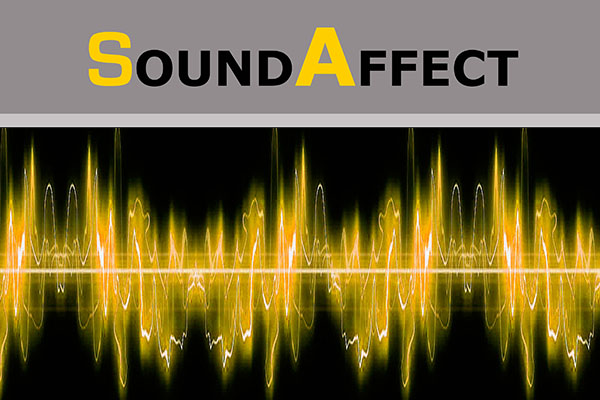
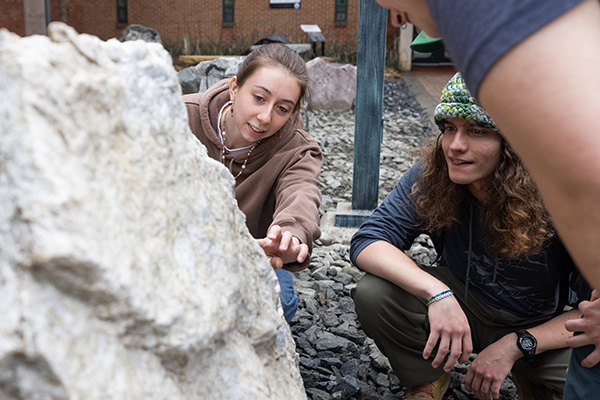
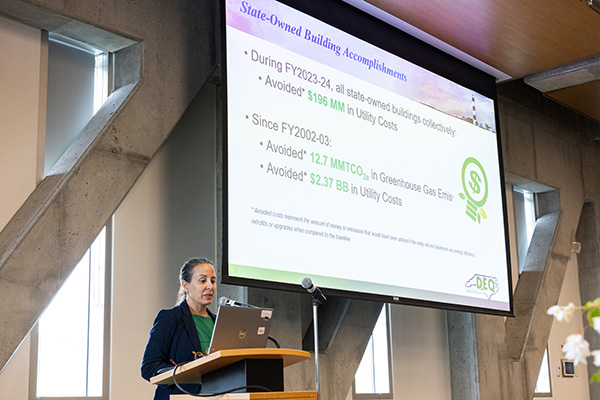
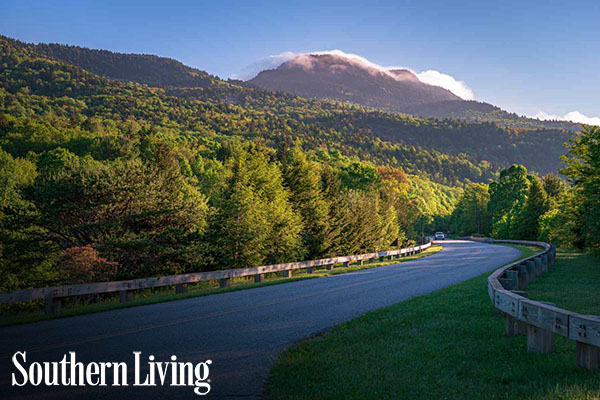
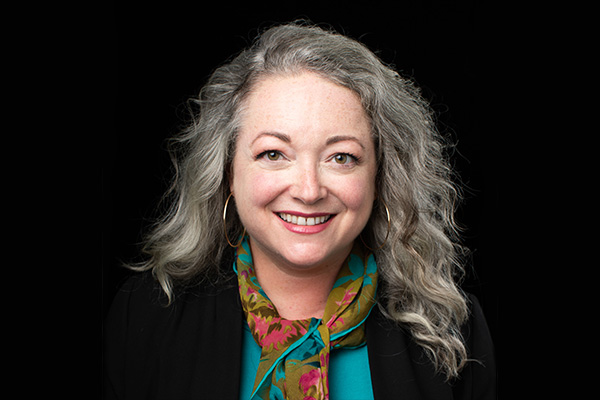

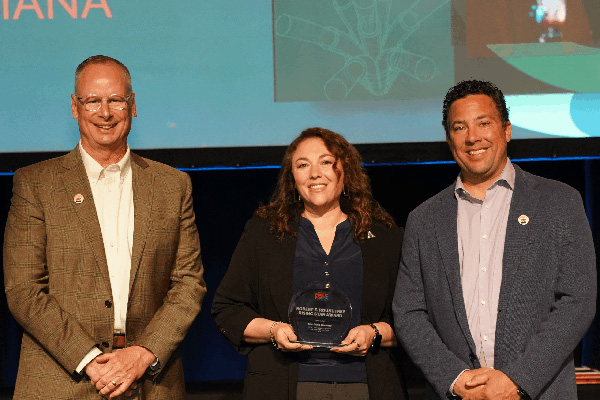
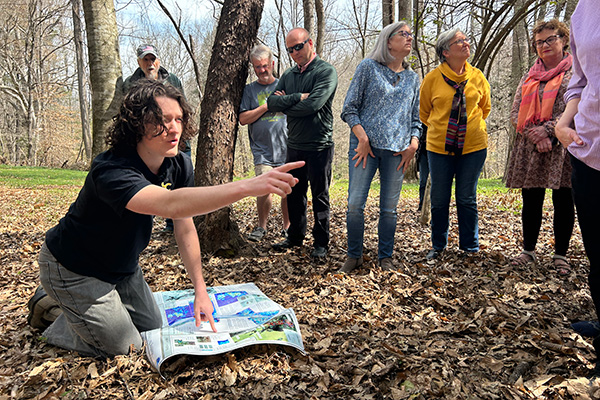
![‘Dragon prince’ dinosaur may be missing link in T. rex evolution [alumni featured]](/_images/_posts/2025/06/dragon-prince-600x400.jpg)
![Is Carb Cycling the Key to Increasing Your Endurance? [faculty featured]](/_images/_posts/2025/06/carb-cycling-600x400.jpg)
